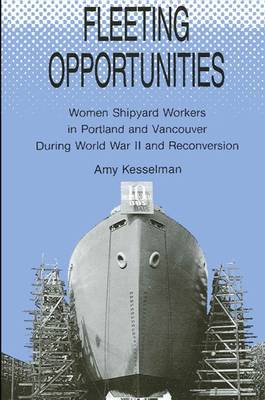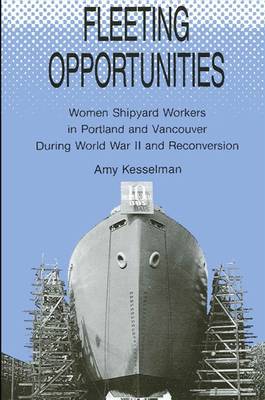
- Afhalen na 1 uur in een winkel met voorraad
- Gratis thuislevering in België vanaf € 30
- Ruim aanbod met 7 miljoen producten
- Afhalen na 1 uur in een winkel met voorraad
- Gratis thuislevering in België vanaf € 30
- Ruim aanbod met 7 miljoen producten
Fleeting Opportunities
Women Shipyard Workers in Portland and Vancouver During World War II and Reconversion
Amy KesselmanOmschrijving
This book tells the story of the daily lives of women industrial workers in World War II shipyards. It focuses on their struggle against the persistence of occupational segregation, the sexual and racial hierarchy of the shipyard work force, and the pervasive emphasis on female sexuality which served as a constant reminder that women were transient and marginal imposters.
In addition, Fleeting Opportunities demonstrates that despite the myth that these women yearned to return to their kitchens, in fact many wanted to continue using their wartime skills in the postwar period. However, finding themselves excluded from jobs by union and management, those who continued to work ended up in low-paying, predominantly female occupations.
Specificaties
Betrokkenen
- Auteur(s):
- Uitgeverij:
Inhoud
- Aantal bladzijden:
- 204
- Taal:
- Engels
- Reeks:
Eigenschappen
- Productcode (EAN):
- 9780791401750
- Verschijningsdatum:
- 8/05/1990
- Uitvoering:
- Paperback
- Formaat:
- Trade paperback (VS)
- Afmetingen:
- 152 mm x 229 mm
- Gewicht:
- 281 g

Alleen bij Standaard Boekhandel
Beoordelingen
We publiceren alleen reviews die voldoen aan de voorwaarden voor reviews. Bekijk onze voorwaarden voor reviews.











